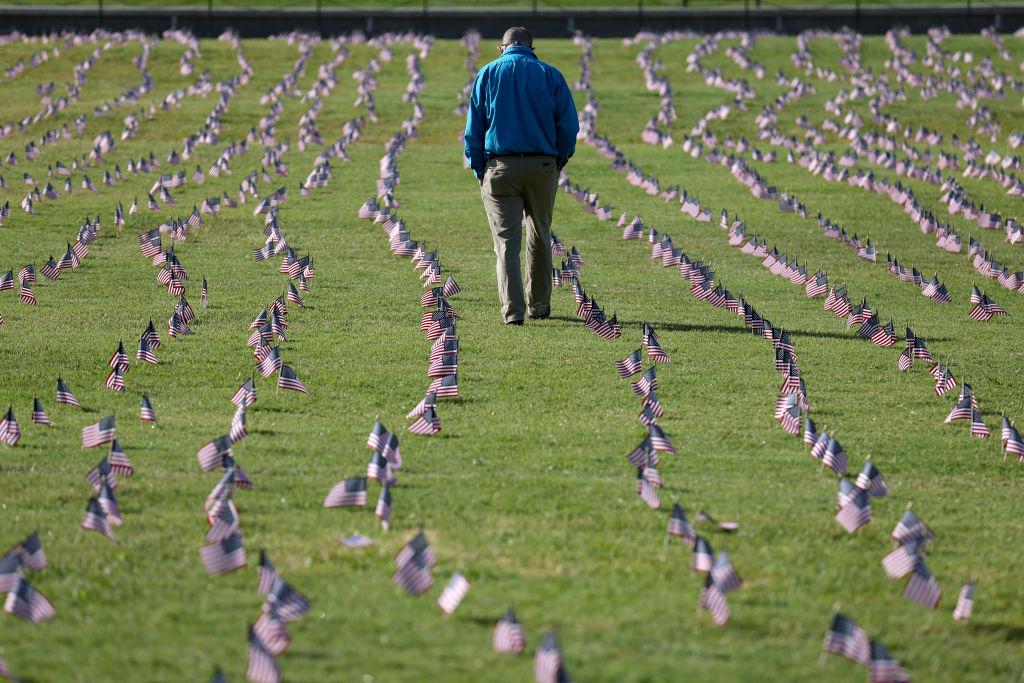
September marked a new year in the Jewish calendar, for schools in the northern hemisphere, and in the realm of diplomacy, with the annual United Nations General Assembly in New York. New years are duly met with new resolutions, which tend to involve renewing one’s commitment to specific goals. But while it’s usually individuals who engage in this practice, organisations or even nation-states can do the same.
In fact, the idea of a New Year’s resolution is one way to understand US President Joe Biden’s UNGA speech on 21 September. The United States, he said, is ‘opening a new era of relentless diplomacy; of using the power of our development aid to invest in new ways of lifting people up around the world; of renewing and defending democracy’. He anchored these goals in values that were ‘stamped into the DNA’ of the US and the UN: ‘freedom, equality, opportunity and a belief in the universal rights of all people’. And he invoked respect for human dignity, individual potential and ‘the inherent humanity that unites us’.
Biden’s speech offered a broad set of resolutions to renew American leadership in the world on issues including health, climate change, nuclear non-proliferation, counterterrorism, conflict prevention, developing-country infrastructure, food security, equality and anti-corruption. He made clear that these goals will be pursued within a framework of both universalism and multilateralism.
But there was something missing from the speech. For resolutions to stick, they must be grounded not only in visions of the future but also in honesty about the past. Biden has been clear about many of the biggest problems facing the world, and he has resolved that the US, along with its allies, will play a leading role in addressing them. But he should have signalled a genuine departure from past practice by expressing a greater willingness to learn from America’s own recent failures.
For example, when touting the US contribution of US$15 billion to the global pandemic response and 160 million vaccine ‘doses of hope’ for others around the world, Biden could have acknowledged that over one-seventh of the 4.7 million reported Covid-19 deaths globally were in the US. America’s disproportionately large share reflects its own inability to fight the coronavirus for most of 2020. To this day, stark political divisions continue to ensure that pockets of the country remain breeding grounds for new variants to emerge.
When Biden spoke about his administration’s admirable and genuine commitment to dealing with climate change, he could have acknowledged that the US bears a disproportionately large share of responsibility for the problem. It has been a leading source of greenhouse-gas emissions for more than a century and its flawed political system has prevented it from committing to international agreements for longer than four years at a time.
When Biden raised the issue of America’s ‘forever wars’, he could have acknowledged that those wars killed far more civilians than soldiers in Iraq and Afghanistan. Even as the US was leaving Afghanistan, American drone operators mistakenly killed an aid worker and seven children.
When Biden described corruption as a ‘national security threat’ that ‘fuels inequality, siphons off a nation’s resources, spreads across borders, and generates human suffering’, he might have added that the billions of dollars the US poured into Afghanistan and Iraq provided fuel for the very corruption he condemns. And he could have acknowledged that the US government knew as early as 2011 how corrupt the Afghan government had become, but decided not to expose or prosecute bad actors.
The reason to be more honest about these issues is not to wallow in America’s flaws and failings. Rather, it is to recognise the complexity of the problems America confronts and its own complicity in them. By making clear that the US understands just how hard it will be to make progress, and that much will depend on it changing its own behaviour, Biden can signal an intention to move beyond rhetoric.
After George Floyd’s murder by Minneapolis police in May 2020, many US companies and institutions issued statements condemning systemic racism, as if the problem was simply ‘out there’, floating in society. But as many people of colour were quick to point out, addressing the problem requires that leaders acknowledge and confront the racism within their own organisations. The same logic applies to nation-states that have set their sights on global problems.
Another reason for being more honest is to lead by ‘the power of our example’, as Biden put it in his inaugural address. Although his UNGA speech never mentioned China and explicitly disavowed any intention of seeking a new cold war, it drew a clear line between the (admittedly imperfect) democracies that seek to uphold the UN’s values and the authoritarian states that violate them at will.
That line does not divide countries full of good people from countries full of bad people, or good governments from bad. Instead, the distinction is between countries that are dedicated to individual rights and those that are not.
China, as its constitution makes clear, is explicitly committed to a socialist system, placing power and ownership in a collective of the people. Yet, in practice, the key difference between free countries and unfree countries lies in the people’s ability to hold their government to account, and thereby narrow the gap between what governments say and what they do.
A new year, whenever and however we mark it, should be an occasion for assessing that gap with radical honesty, and for using that assessment to guide a renewed commitment to professed ideals. If our leaders did that, the annual UNGA would look very different.